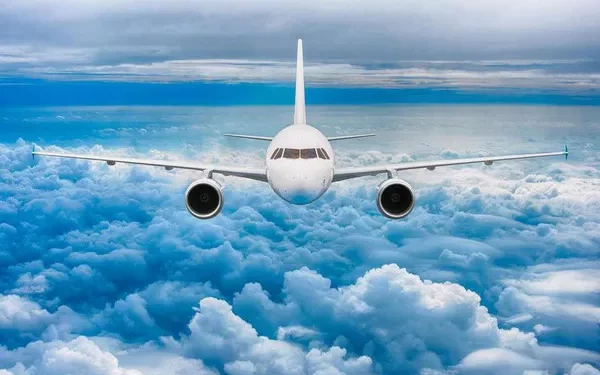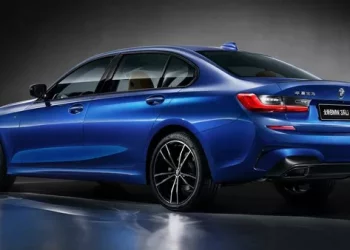Private jets are luxurious aircraft that offer comfort, convenience, and speed to their passengers. Owning or leasing a private jet comes with several expenses, including maintenance, insurance, crew salaries, and fuel costs. Fuel costs are one of the most significant expenses associated with operating a private jet. In this article, we will explore how much it costs to fuel a private jet.
Factors Affecting Private Jet Fuel Costs
The cost of fueling a private jet varies depending on several factors. Some of these factors include:
1.Aircraft Type
The type of aircraft you own or lease plays a crucial role in determining your fuel costs. Larger aircraft require more fuel than smaller ones. For instance, a Gulfstream G650ER, which is one of the largest business jets available, consumes approximately ly 480 gallons per hour , while a Cessna Citation M2, one of the smallest business jets, uses about 100 gallons per hour.
2.Fuel Prices
Fuel prices vary depending on location and time. Generally, fuel prices at larger airports tend to be higher compared to smaller ones. Additionally, fuel prices are subject to fluctuations due to global events such as natural disasters, political instability, or changes in oil supply .
3. Flight Distance
The distance you intend to travel affects your fuel costs directly. Longer flights consume more fuel compared to shorter flights. This is because the aircraft will need to carry more fuel to cover the distance.
4. Flight Altitude
The altitude at which you fly your airplane also affects fuel consumption. Flying at lower altitudes results in higher fuel consumption due to air resistance. Flying at higher altitudes reduces air resistance, which translates to lower fuel consumption.
5. Passenger/Cargo Load
The weight of passengers and cargo onboard the plane affects its fuel consumption. The heavier the load, the more fuel the plane will consume.
How Much Does It Cost to Fuel a Private Jet?
The cost of fueling a private jet depends on the factors mentioned above. However, to provide an estimate, let us consider a few examples.
-
Cessna Citation M2
The Cessna Citation M2 is one of the smallest business jets available. It has a range of approximately 1,550 nautical miles and consumes about 100 gallons of fuel per hour. Assuming a fuel price of $5 per gallon, it would cost approximately $500 per hour to fuel this aircraft. Therefore, a 4-hour flight would cost around $2,000 in fuel expenses.
-
Gulfstream G650ER
The Gulfstream G650ER is one of the largest and most expensive business jets available. It has a range of approximately 7,500 nautical miles and consumes about 480 gallons of fuel per hour. Assuming a fuel price of $5 per gallon, it would cost approximately $2,400 per hour to fuel this aircraft. Therefore, a 10-hour flight would cost around $24,000 in fuel expenses.
-
Bombardier Global 7500
The Bombardier Global 7500 is one of the newest and largest business jets available. It has a range of approximately 7,700 nautical miles and consumes about 400 gallons of fuel per hour. Assuming a fuel price of $5 per gallon, it would cost approximately $2,000 per hour to fuel this aircraft. Therefore, a 15-hour flight would cost around $30,000 in fuel expenses.
It is worth noting that these are estimates only. Fuel prices vary depending on location and time, and other factors such as weather conditions and air traffic can also affect fuel costs.
Ways to Reduce Private Jet Fuel Costs
While fuel costs are a significant expense associated with operating a private jet, there are ways to reduce them. Some of these ways include:
1.Flight Planning
Proper flight planning can help reduce fuel costs. This includes optimizing the altitude and route of the flight to minimize air resistance and maximize fuel efficiency. Additionally, avoiding unnecessary stops or detours can also save fuel.
2.Aircraft Maintenance
Regular maintenance of your aircraft can help ensure that it is operating at optimal efficiency. This includes regular engine checks, cleaning and tuning of the engine components, and replacing old or worn-out parts.
3.Fuel Efficiency Upgrades
Installing fuel-efficient upgrades on your aircraft can help reduce fuel consumption. Some of these upgrades include winglets, which reduce drag and improve fuel efficiency, and more efficient engines.
4.Fly a Smaller Jet
As mentioned earlier, larger jets consume more fuel compared to smaller ones. If possible, consider leasing or owning a smaller jet if your needs permit it.
Conclusion
Fuel costs are a significant expense associated with operating a private jet. The cost of fueling a private jet depends on several factors, including aircraft type, fuel prices, flight distance, flight altitude, and passenger/cargo load. While fuel costs cannot be avoided, there are ways to reduce them through proper flight planning, regular aircraft maintenance, installing fuel-efficient.
Related topics:









































